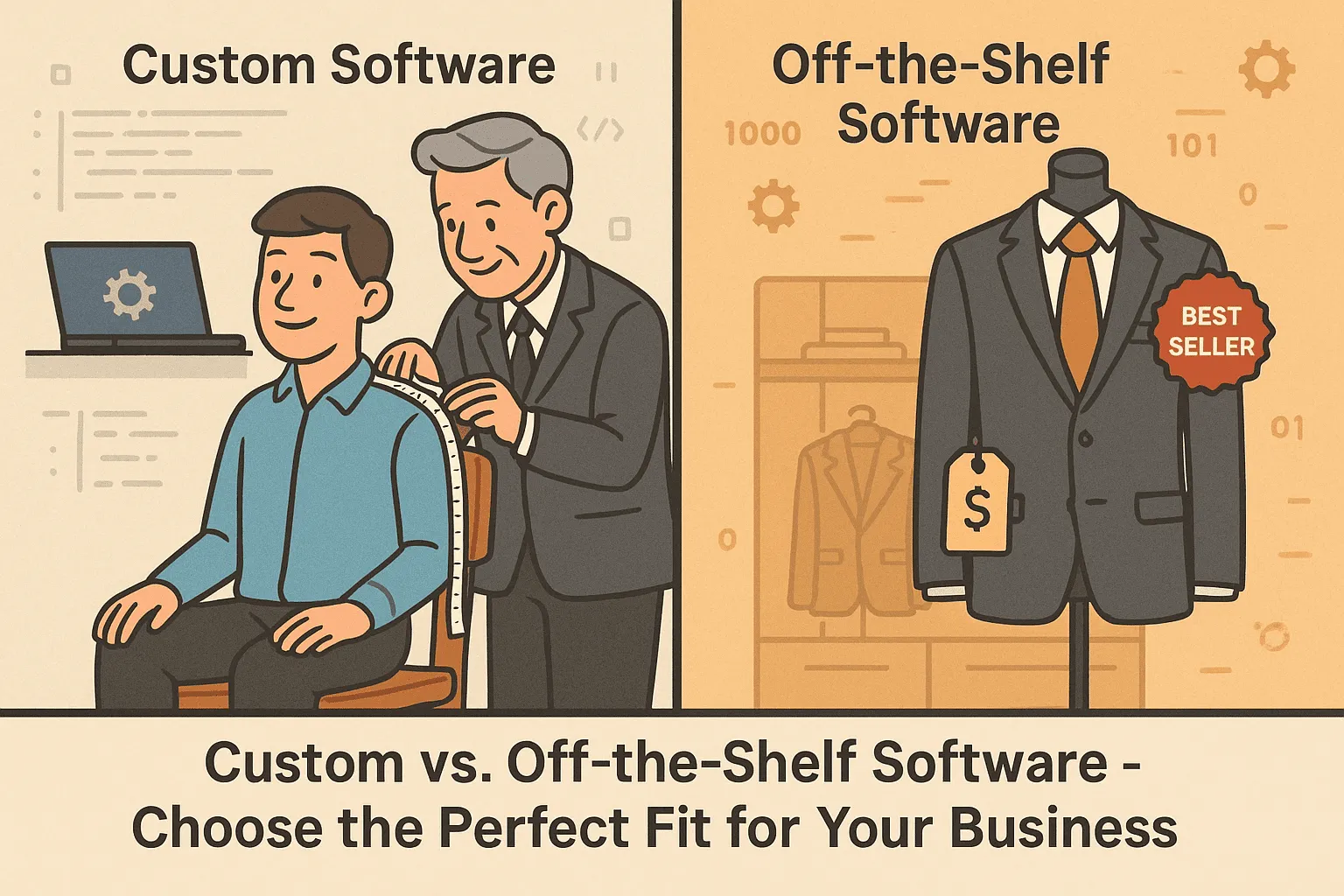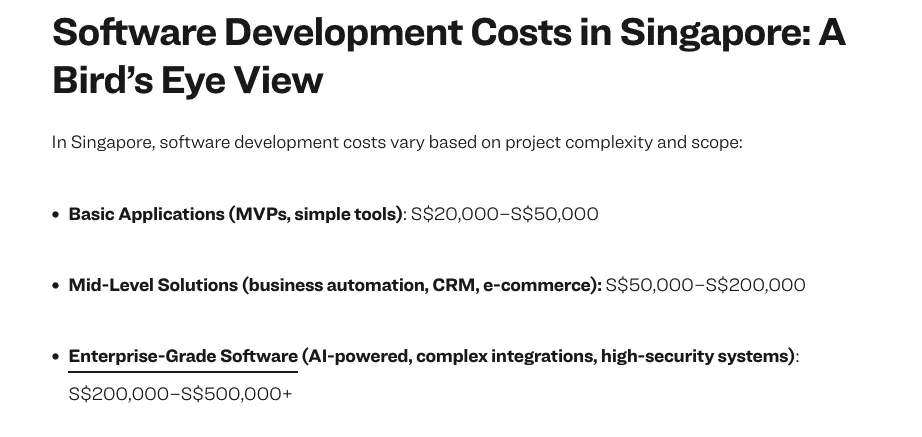April 15, 2025
Custom vs. Off-the-Shelf Software
Most SMEs in Singapore settle for ready-made tools like Xero, Shopify, or Salesforce because building their own software seems expensive and complicated (It's not, continue reading). But while these tools seem convenient at first, are they really the best long-term fit for your unique business needs?
So, when you’re deciding which software to use in your business, you essentially have two main options. On one side, there’s custom software—applications made just for your business to meet your unique needs, and made to scale with your requirements and growth.
On the other hand, there’s off-the-shelf software—ready-made programs designed for a wide range of users like you, having a common problem. It might usually cover most typical use cases, but they often miss the finer details that matter to how your business actually runs.
You might end up adjusting your workflow and operations just to make the software fit, instead of having it work for you - which defeats the whole purpose of having the software in the first place.
It's like choosing between a custom-tailored suit and a ready-made suit that fits most sizes. Both can work well, but the best choice depends on your specific needs, requirements and budget.
What is Custom Software?
Custom software is built specifically for your business needs. It’s like having a suit made just for you; it fits perfectly because it’s based on your exact measurements and your requirements.
If your SME has unique processes, workflows, or customer needs, then a custom solution can make things smoother, faster, and more flexible. It can also scale as your business grows and offer better security since it's not widely used by others.
“Controlling the system allows us to be the arbiter… Every software release adds features, addresses gaps, and we listen to feedback. It drives our software roadmap so we’re delivering what customers want.” - Robert Scaringe, CEO of Rivian
That’s exactly what SMEs can achieve with custom software: flexibility and direct alignment with customer needs.
Check out some excellent custom software examples here.
What about Off-the-Shelf Software?
Off-the-shelf software is more like buying a ready-made suit from a store. These products are designed to meet the common needs of many businesses. Programs such as Microsoft Office, QuickBooks, and Salesforce are built with standard features that work for a wide audience.
They’re quick to start using, usually cheaper upfront, and come with regular updates and large user communities for support.
But they might not match the way your business works. You may have to change your workflow to fit the software, and customisation is often limited. Integrating them with your existing systems can also be tricky at times.
Why Most SMEs Avoid Custom Software
Most SMEs avoid custom software because they feel it's expensive and takes a lot of time, and it used to be true - BEFORE.
But that’s no longer the case.
With the rise of AI and new solutions, this has become much more affordable and less time-consuming.
Imagine just sending an email like this:
“I need a simple CRM to track enquiries and auto-reply to leads.”
And it builds you a custom software after getting the requirements from you via email and building it using AI.
So good to be true, right?
But thats exactly what Tim (Your AI Digital Employee) does for you.
And that’s just one of the many things Tim can build for you.
Comparing both Options
| Feature | Custom Software | Off-the-Shelf Software |
| Cost (Initial) | Higher | Lower |
| Monthly Fees | Usually one-time with maintenance charges | Ongoing Subscription |
| Fit | Exact fit for your business | General fit on most businesses |
| Setup Time | Slower | Instant |
| Flexibility | High | Limited |
| Integration | Easy to integrate | Might require workarounds |
| Scalability | Built to grow with you | Can be limiting over time and might need to change. |
What should you do?
Most small businesses end up using off-the-shelf generic software, not because it’s the best fit, but because they assume custom software is out of reach.
That’s no longer the case.
At Konigle, we believe your tools should adapt to your business, not the other way around. Custom software isn’t just for big enterprises anymore. With Tim, our AI Digital Employee, we’re making powerful, tailored solutions accessible to SMEs of every size.
You shouldn’t have to waste hours patching together tools that don’t fully work for you. Your business is unique, and your software should reflect that.


